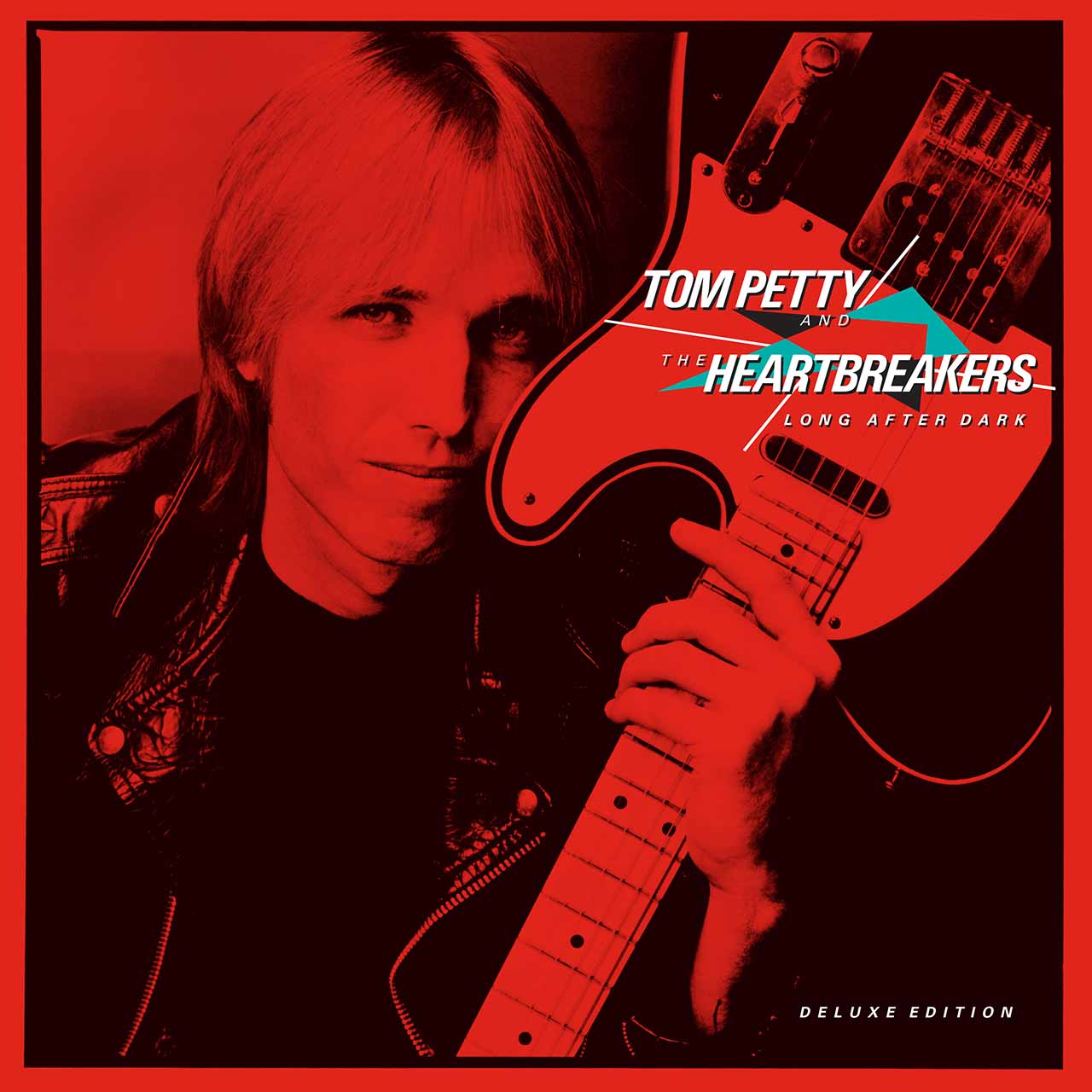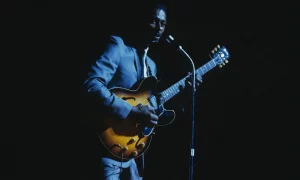“It always plays with people’s heads if you do something they don’t expect.” That’s what Tom Petty told Creem in 1983. The famed bandleader had just followed his most reflective album so far – 1981’s Hard Promises – with the most unreserved rockfest of his career: Long After Dark. As Petty explained to Hit Parader, “I wanted a pretty aggressive feel on Long After Dark. I’m glad we did the softer things we did on Hard Promises, but that’s out of my system now.”
But while Petty and the Heartbreakers were embracing their raw, rocking roots, their fifth album found them dealing with the first-ever break in their familial bond. Ron Blair had been the Heartbreakers’ unflappable bass man from the beginning, but he’d grown weary of the grind of road life, and after Hard Promises, he bid his buddies goodbye.
Order the deluxe edition of Tom Petty And The Heartbreakers’ Long After Dark now.
Luckily, fate had already put Petty in the path of the next Heartbreaker. He’d recently produced Del Shannon’s comeback album, Drop Down and Get Me, encountering Shannon’s killer bassist Howie Epstein in the process. Deciding he’d rather risk Shannon’s ire than have a hole in his band, Petty brought Epstein into the fold in time to rock the bottom end on Long After Dark. The newbie fit like a thumb wrapped around a fist.
One of the album’s hookiest tunes and its second Top 40 hit, “Change of Heart” simultaneously reached back to Petty’s past and predicted his future. With a well-documented love of ‘60s Britrock, Petty modeled the track’s punchy power-pop chord changes on “Do Ya” by The Move. ELO mastermind Jeff Lynne wrote the tune while he was still a Move member (later covering it with ELO). At the time, Petty had no idea that Lynne would later become his co-producer and join him in The Traveling Wilburys. But “Change of Heart” does that tried-and-true chord progression proud, sounding fresh, fiery, and very much its own animal.
That track typifies the hard-charging sound that dominates Long After Dark. “It’s probably the most energetic album we’ve ever done,” said Petty. “Finding Out” is among the speediest, most unrelenting rockers in the band’s repertoire, evoking a herd of restless racehorses bursting out of a gate. The band rides some primal riffs to rock ‘n’ roll glory on “Deliver Me,” and the equally rifftastic “The Same Old You” swaggers down a back alley that leads someplace satisfyingly Stonesy.
Ironically, the album’s biggest hit is its stylistic outlier. One of Petty’s favorite albums of 1982 was Roxy Music’s ultra-atmospheric Avalon, which led him to take synthesizers more seriously. “You Got Lucky” is dominated by thick, weeping synth chords. But the guitar lines Mike Campbell lays on top are equally unexpected.
Campbell later told Songfacts, “The guitar solo was Tom’s idea, he suggested we do an Ennio Morricone guitar sound…. a Good, The Bad, and the Ugly kind of thing.” Between the wide, wobbly tremolo of Campbell’s guitar and Benmont Tench’s melancholy, minor-key synthesizer, the track conjures up a film noir feel that’s like nothing else on Long After Dark.
Elsewhere, the band’s glee about getting back to rocking out is audible. But Petty’s mercurial nature dictated that there wouldn’t be any sort of sequel. Indeed, 1985’s Southern Accents would offer some of the band’s most surprising musical detours yet. No other Petty album of the ‘80s finds him and the Heartbreakers cranking up the amps and kicking out the jams quite like Long After Dark.
Order the deluxe edition of Tom Petty And The Heartbreakers’ Long After Dark now.



